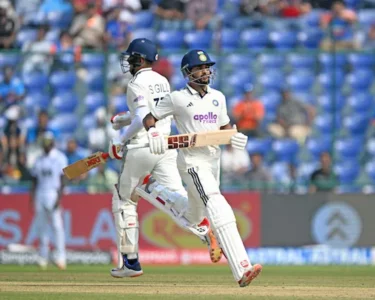Former Pakistan women’s cricket captain Sana Mir has found herself at the centre of a heated controversy during the ongoing ICC Women’s World Cup 2025, after her on-air remark referring to a player’s origin as “Azad Kashmir” sparked widespread criticism. The incident, which unfolded during Pakistan’s group-stage match, has ignited strong reactions on social media and in the press, raising questions about the delicate intersection of sports, politics, and commentary neutrality.
The Controversial Remark
While providing live analysis, Sana Mir mentioned that Pakistan cricketer Natalia Pervaiz originally hailed from Kashmir, and quickly specified the region as “Azad Kashmir.” The use of this term drew immediate attention since it refers to the Pakistan-administered part of the disputed territory of Jammu and Kashmir. In India, the same region is commonly referred to as Pakistan-occupied Kashmir (PoK), making her choice of words politically sensitive.
Video clips of the commentary soon circulated online, with critics accusing Mir of deliberately using a politically charged phrase during an international sporting event that is supposed to remain neutral. The backlash was particularly strong on social media platforms, where fans debated whether her words were a simple slip, a factual note, or a political statement disguised as player background information.
Sana Mir’s Response
In the face of growing controversy, Sana Mir took to her official social media accounts to issue a detailed clarification. She stated that her intent was never to make a political statement or cause offense. Instead, she claimed she wanted to highlight the struggles of players from remote and underrepresented regions, explaining how athletes like Natalia had to leave their hometowns and move to larger cities such as Lahore in order to pursue their cricketing ambitions.
Sana emphasised that her remark had “no malice” and carried no political motive. To further support her explanation, she even shared a screenshot of the research source she used while preparing for commentary, showing that the player’s background was documented as such. She urged fans and the media not to politicise the matter and expressed disappointment that a simple human-interest detail required so much justification.
Why the Remark is Sensitive
The controversy is rooted in the long-standing geopolitical dispute between India and Pakistan over Jammu and Kashmir. For decades, the terminology used to describe regions in this conflict has been heavily contested, with both nations maintaining different official narratives. In this context, public figures, especially commentators on international platforms, are often expected to choose words carefully to avoid inflaming tensions.
Sports has historically been seen as a unifying activity, but in South Asia, cricket frequently mirrors broader political and nationalistic rivalries. As such, Mir’s comment was bound to attract scrutiny, regardless of her personal intent.
Divided Reactions
The reaction to Sana Mir’s clarification has been mixed.
- Supporters argue that she was merely referring to a player’s hometown and highlighting the barriers faced by female cricketers from less developed regions. They believe critics are blowing the issue out of proportion and unnecessarily dragging politics into sport.
- Critics, however, maintain that as a seasoned commentator and former national captain, Mir should have known better than to use terminology that carries political weight, particularly during a global broadcast.
The Broader Debate
The incident has reignited the broader debate about politics in sports. Can sports commentary ever be entirely apolitical, especially when covering regions with contested identities? Should commentators restrict themselves to neutral terminology, or do they have the freedom to reflect local naming conventions? These questions remain unresolved, but Mir’s case has certainly added fuel to the ongoing discourse.
Conclusion
Despite the backlash, Sana Mir has refused to issue a formal apology, choosing instead to justify her comment as an innocent acknowledgment of a player’s origin. While her supporters see this as an act of principle, her critics argue it reflects insensitivity to the complex political realities of South Asia.
As the Women’s World Cup continues, the controversy underscores how easily the worlds of sport and politics intersect, particularly in cricket, where national identity and pride are deeply intertwined. Whether this row fades away or leaves a lasting mark on Mir’s career, it is clear that the former Pakistan captain’s words have sparked a conversation far bigger than the game itself.







